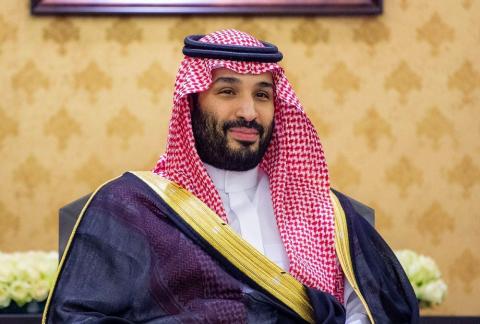
After taking office, Prime Minister Imran Khan’s first official foreign visit was to Saudi Arabia, which reflects the important place it has always occupied in Pakistan’s foreign policy. Now, the visit of Crown Prince Mohammed bin Salman to Pakistan will take the Pakistan-Saudi strategic cooperative partnership to ever new heights, consolidating bilateral relations in ways that will be hugely consequential not only for the two countries, but for the region and the world at large.
The Saudi crown prince is energetic and has so far revealed a brave new vision for the future. In Khan, he is likely to find a resilient strategic partner with visions of his own to transform the age-old political order in Pakistan. Both are capable of giving new life and momentum to Saudi-Pakistan relations.
In the bilateral context, Pakistan is excited about the dividends that will accrue by linking Saudi Arabia to the “connectivity” concept that is at the heart of the China-Pakistan Economic Corridor plan. Saudi investments in an oil refinery in the port city of Gwadar in southwest Pakistan, as well as large-scale investments in special economic zones in the agricultural and technology sectors, will accrue mutual benefits.
Pakistan already stands at a huge advantage because of preferential credit sales of oil by Saudi Arabia and substantial balance of payments support. It also benefits from remittances by Pakistani expats in the Kingdom, while robust cooperation between the defense forces of the two countries is an additional source of strength.
The relationship between Pakistan and Saudi Arabia is undergoing an unprecedented increase in scope now more than ever with two unique men at the helm of their visions.
Salman Bashir
Perhaps most pressingly, the visit of the crown prince comes at a time of doubt and unreliability in the Muslim world at large. It is no secret that global and regional developments over recent decades have severely affected the Muslim world and the polarization of the Islamic world is becoming increasingly problematic. In these uncertain times, the world needs anchors to revive hope for a better tomorrow. Pakistan and Saudi Arabia are well placed to aid the hotspots of instability and violence across North Africa, the Middle East, Afghanistan, Kashmir and Myanmar. Vital next steps in Syria, Iraq and Libya should be outlined with diplomatic and other processes of reconciliation under the grand rubric of Islamic solidarity. This is also true of Afghanistan, where the search for a durable political settlement assumes greater urgency among a host of pressing regional issues that require bilateral cooperation.
The coordination of Saudi Arabia and Pakistan is extremely vital for the stability of Afghanistan and the entire region. Any political settlement in Afghanistan will require the underpinnings of a solid economic foundation and regional trust. Without it, an intra-Afghan settlement will unravel and, despite other important players, this makes ties between Pakistan and the Kingdom not just important but indispensable.
The crown prince is also likely to visit India on his tour and he could make a definitive argument for peace in the broader South Asian region. Saudi Arabia has always supported the cause of the Kashmiri people to exercise their inalienable right to self-determination. The Kingdom’s iteration on the need to implement this right among the Kashmiri people and a call for improved relations with India will be a welcome push toward result-oriented political processes.
The relationship between Pakistan and Saudi Arabia, an association that spans spiritual, economic, social and political realms, is undergoing an unprecedented increase in scope now more than ever with two unique men at the helm of their visions. The cautious hope is that this cooperation might extend the boundaries of its bilateral benefits and bring prosperity to an entire region.
— Salman Bashir is a Pakistani diplomat who served as the Foreign Secretary of Pakistan.
Twitter: @SalmanB_Isb
Disclaimer: Views expressed by writers in this section are their own and do not necessarily reflect Arab News" point-of-view






